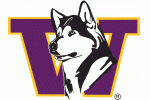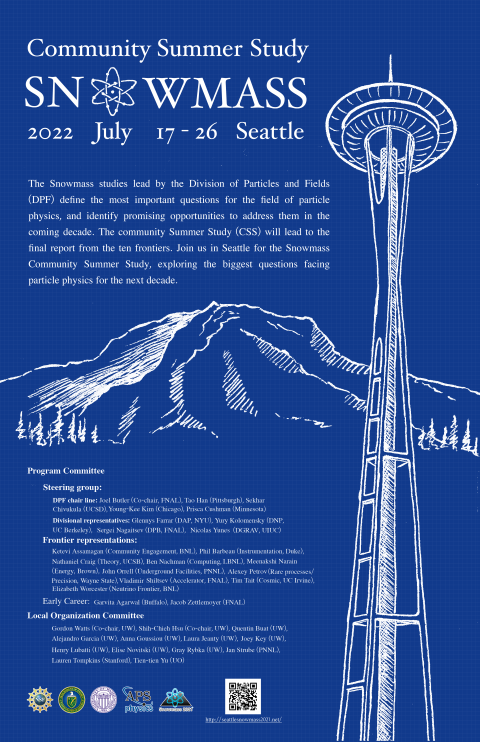We are expecting over 600 people to join us over the course of 10 days. Community spread exists in Seattle (rated as Medium as of 6/29), but people will be arriving from hot spots around the country to this workshop. It is almost certain there will be a case or two at the workshop. We must all work together as a community to make sure that we keep as safe as possible before the conference and prevent any spread at the conference.
What to do before you arrive
- Please make sure you’ve had at least one booster! There is no better way to limit the spread of COVID-19 than making sure your vaccinations are up to date!
- Download and install the WANotify app - this will enable automatic and anonymous contact tracing - and will be very helpful when we do have a case at the workshop.
- Pack masks. The N95 and FFP masks are best to protect you, and medical masks will help protect others. We will also have a supply of masks on hand.
- Please bring self-tests if you have any to spare for the trip. We will have a limited number on hand locally (which have been imported from France).
What to do while attending the workshop
- Masking with a well-fitted, high-quality mask (KN95 or similar) is required in all indoor meeting spaces. For speakers, mask wearing is recommended, and required in rooms where the speakers are closer than 2 meters to the audience.
-
Masking is not required while enjoying our coffee breaks, but please keep your mask on while in line collecting the coffee and snacks and move to an out-of-the-way area to eat. If the weather is nice, feel free to enjoy the coffee with colleagues outdoors.
- When approaching the help desk or registration desk, even the ones in a non-snowmass specific area, make sure to wear a mask. The professionals running these desks live by their ability to host conferences and a case of COVID would severely impact their ability to work (and help us out at this workshop).
- Please try to keep track of people you have significant interactions with and meetings you attend, just in case we need to perform contact tracing.
- Look at the daily emails where COVID cases will be reported to help you adjust your behavior to a level you are comfortable with.
- For all other meeting rooms, buildings, etc., at UW, masking is strongly recommended. There are some places where masks are required around the university. Please follow all signage.
- Please be respectful of others’ interaction comfort levels.
What to do if you have symptoms
If you have symptoms that are consistent with COVID please attend the workshop remotely until you test negative.
- All in-person participants will get links to Zoom rooms - please see the daily emails for zoom links!
- For more information on COVID symptoms, please see the CDC site. If you are experiencing expected allergy-like symptoms, please see the “What should I do if my symptom’s are due to seasonal allergies” on the UW FAQ
Testing:
- University of Washington offers PCR testing. Look for the University District testing option here. These are PCR tests, which means results can take up to 48 hours to be reported. You’ll need your medical insurance (if you are uninsured, then testing is free).
- Self-Testing. We hhave plenty number of tests on hand to provide to people with symptoms who haven’t brought their own. You can also get them at Target for $7.99 - 4535 University Way NE, Seattle, WA 98105.
- Since you have symptoms, please do not approach the registration desk or come to indoor Snowmass spaces. There is a box outside the Kane Hall Lobby labeled “Snowmass” and that will contain a few self tests. Please email confuw@uw.edu to let them know you are going to pick it up a test so they can make sure the test box is stocked before you arrive. Please do not approach the desk with symptoms.
- To take the test, please find a place that away from people (your hotel room is ideal, for example). You’ll need about 15 minutes to determine your status. Please do this as soon as you can - the modern variants of Omicron can transmit very quickly.
What to do if you test positive
COVID is now a regular part of our landscape - many of us are going to be dealing with it. As a community we can work together to make sure that we limit its spread when it is discovered.
- Please isolate yourself. The most logical place for this is your hotel or dorm room. The CDC has extensive guidelines on what to do, which can be found on their website.
- Please send an email to conference services at confuw@uw.edu - they will notify the University of Washington and help with contract notification and warning. Your name will not be made public.
- If you need help, please do not hesitate to contact us the same address above. We realize having to go into isolation in a strange city can be a daunting - we will do our best to help.
- The university has a large hospital attached to it. The emergency room entrance is about a 15 minute walk from our main conference buildings. It is the main hospital in all of the Pacific Northwest and provides a complete range of care.
If you are staying in the dorms:
- Guests staying in single occupancy rooms may isolate in place
- Guests who are staying in double occupancy rooms can be moved into an isolation room on campus, or the positive guest can choose to isolate off campus
- Guests are not obligated to stay on campus during isolation or beyond their original check-out date
- Guests may order delivery food or we can deliver three hot meals to their room for $40/day. Please contact the front desk at 206-685-2959.
- The guest will be responsible for all additional isolation housing and dining costs
Links
- University of Washington COVID-19 Dashboard - Only employee and student cases are tracked here. Current Masking Policy can be found here.
- University of Washington COVID-19 Policy
- Kind County COVID Dashboard. King County is where Seattle is located.
- Washington State COVID-19 Website
- WA-Notify App information.





